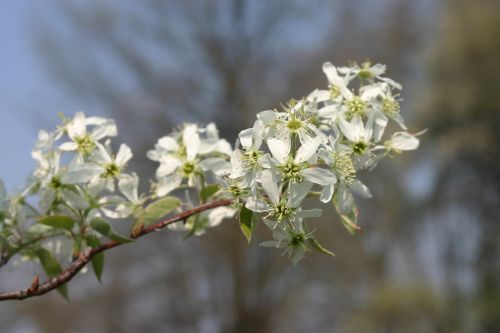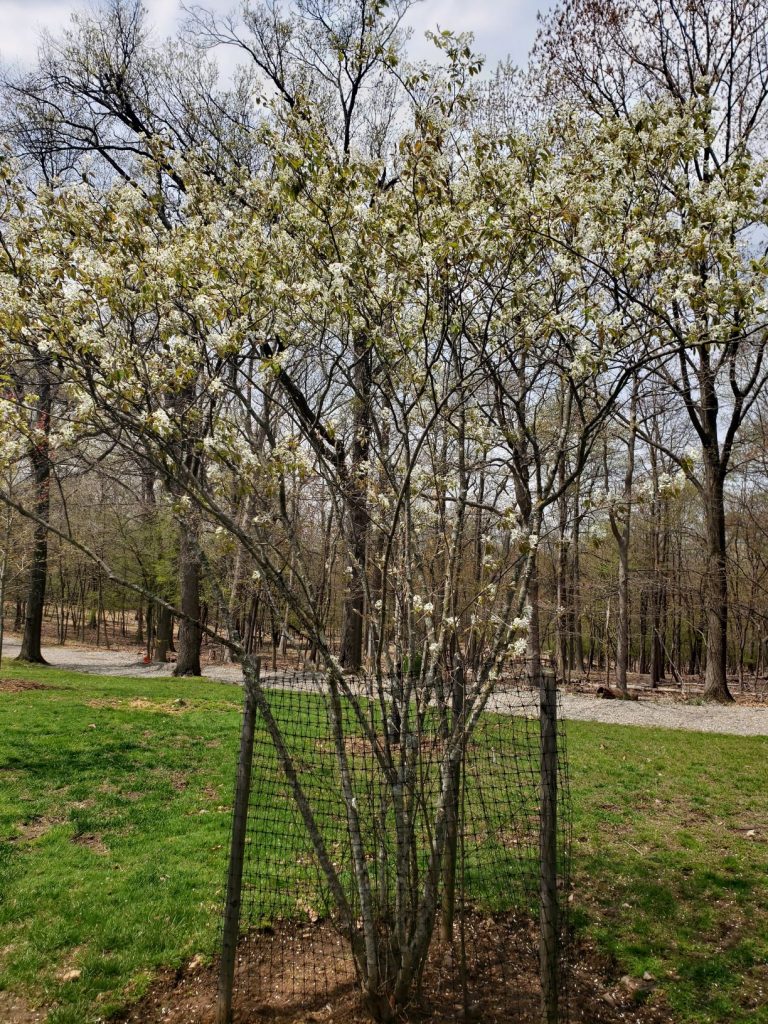So you’re looking for a tree but want something that’s not too tall? After all, many New Jersey gardens are not large enough for 70-foot trees such as oaks. Our native serviceberry might offer a solution for you. Although some are trees with a single trunk, most serviceberries are actually large multi-stemmed shrubs that can grow to 30-feet tall under optimal conditions.

Serviceberry, which belongs to the genus Amelanchier, goes by other names including shadbush and Juneberry. It is an excellent plant for wildlife, as it hosts the caterpillars of over 100 species of Lepidoptera (butterflies, moths and skippers). It also produces fruit in June—hence the name—which feeds numerous birds and small mammals. The fruits
resemble blueberries, and it is said they taste like them as well. They are edible and can be made into jams, jellies and pies. Native Americans used serviceberry for medicinal purposes.
An early spring flowering shrub, serviceberry is a member of the rose family (as are strawberries) and produces five-petaled white flowers. It is very valuable to insects because it blooms in April when there are few sources of nectar around. Unfortunately, the flowers don’t last long. In addition to early spring bloom and summer berries, another attribute of this plant is its beautiful fall color which varies according to the species. Serviceberries can tolerate part shade and act as understory shrubs but will produce more flowers—and therefore fruit—in full sun.
Several species of serviceberry are available. You should familiarize yourself with them in order to select the right one for your needs. Some species need moist soils, while others will do well in average soil conditions. All species tolerate a range of soils, including clay. Amelanchier spicata grows to only 6-feet tall and spreads to form a hedge. Consider this one for screening purposes. Amelanchier laevis can get 25-feet tall and prefers soils on the moist side.
So, if you’re looking for early spring flowers, instead of the ubiquitous non-native cherry trees, consider serviceberry. Your garden will be more eco-friendly!

